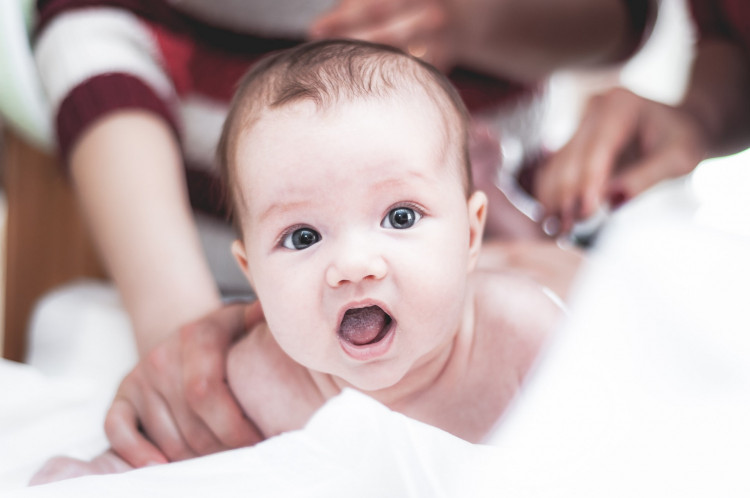If you're pregnant and COVID-19 positive, here's some reassuring news: There's little indication that you'll transfer COVID-19 on to your newborn after she's born, provided you obey all the basic safety precautions, like using a mask when breastfeeding and sleeping at least 6 feet apart while rooming-in, according to a new study.
Researchers at Columbia University Irving Medical Center in New York City examined 101 babies born to COVID-19-positive moms at the height of the outbreak. After birth, nearly all moms wanted to breastfeed their babies and were told to wear a mask to do so and to wash their breasts and hands with soap and water. Three-quarters of the moms lived in the same room as their child, and the infant was placed 6 feet apart in a protective crib.
Only two of the newborns tested positive for COVID-19 and did not exhibit any symptoms of the disease (including when the researchers followed up with them two weeks later). Why the newborns contracted, the disease isn't clear.
Based on the results, the research authors suggested in JAMA Pediatrics that if good hygiene and distance measures are taken, there is no indication that COVID-19 is transferred from moms to their newborns.
Guidance and procedures have changed since the onset of the pandemic on what to do when a woman with COVID-19 gives birth. At first, the knowledge of the disease and dissemination by physicians was limited, and some pediatric organizations and clinics advised that newborns be isolated for up to a week from their mothers. This is evolving as evidence continues to grow that these separations may not be appropriate and also because health care professionals understand the value of skin-to-skin contact and post-birth breastfeeding.
For example, the American College of Obstetricians and Gynecology now says that separation can be necessary occasionally but encourages a method of "shared decision-making" involving the patient, relatives, and clinical staff.
Upon pregnancy, skin-to-skin contact helps a mom and her baby bond and is good for the development of an infant. For both the mom and the baby, breastfeeding is often very helpful and is ideally instigated shortly after birth. Breast milk may also produce antibodies that, according to the researchers, may help combat the coronavirus.
"Our findings should reassure expectant mothers with COVID-19 that basic infection-control measures during and after childbirth - such as wearing a mask and engaging in breast and hand hygiene when holding or breastfeeding a baby - protected newborns from infection in this series," the study's lead author, Cynthia Gyamfi-Bannerman, said in a statement.






